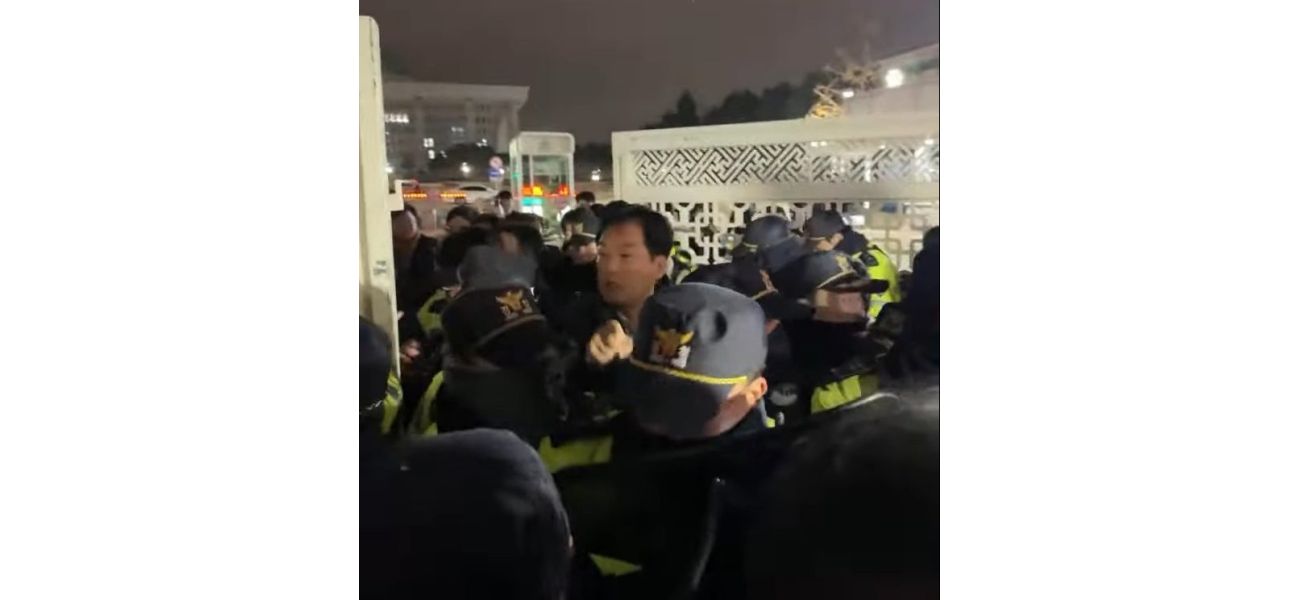South Korea imposes martial law for first time in half a century due to North Korean threat.
TV announcement revealed unexpected news to the public.
December 3rd 2024.

The situation in South Korea has taken a drastic turn as an "emergency martial law" has been declared for the first time in almost fifty years. President Yoon Suk Yeol made the announcement on Tuesday, stating that it was necessary to preserve the free and constitutional order in the country. He placed the blame on opposition parties, accusing them of hijacking the parliament and causing a crisis, as well as having sympathies towards North Korea.
In a televised address to the nation, President Yoon promised to eliminate any pro-North Korean groups and protect the democratic order that is enshrined in the country's constitution. However, opposition leader Lee Jae-myung, who narrowly lost to Yoon in the recent presidential election, denounced the declaration as "illegal and unconstitutional." Reports have also surfaced that the National Assembly, the country's parliament building, has been closed off to members, with entry and exit points blocked.
As the news spread, hundreds of protesters gathered outside the National Assembly in Seoul, with some even charging towards the building. The scene quickly turned chaotic as some protesters managed to breach the main gate, while others clashed with the police who were trying to maintain order. It has been reported that there is a high possibility of the military being mobilized to arrest members of the National Assembly. Meanwhile, Defense Minister Shin Won-sik has ordered all military units to increase their readiness.
According to earlier reports, Army General Park An-su has been appointed as the martial law commander. Martial law is a temporary rule imposed by military authorities and is usually invoked during times of war, rebellion, or natural disasters. This usually involves the suspension of civil law and rights, and a curfew may also be put in place. Those who defy martial law may face military tribunals instead of civil courts.
But what exactly is martial law? It can be declared when there is a high risk of civil unrest or major disasters. The key features of martial law include imposing a curfew, suspending civil law and rights, and applying military law to civilians. In theory, martial law is meant to be temporary, but in practice, it can continue indefinitely.
President Yoon did not specify what measures would be taken under the martial law, but he stressed that it was necessary to protect the country's constitutional order. However, the impact of this declaration on the country's governance and democracy remains to be seen. For the latest updates on this developing situation, you can follow The Agency on social media or sign up for daily push alerts.
In a televised address to the nation, President Yoon promised to eliminate any pro-North Korean groups and protect the democratic order that is enshrined in the country's constitution. However, opposition leader Lee Jae-myung, who narrowly lost to Yoon in the recent presidential election, denounced the declaration as "illegal and unconstitutional." Reports have also surfaced that the National Assembly, the country's parliament building, has been closed off to members, with entry and exit points blocked.
As the news spread, hundreds of protesters gathered outside the National Assembly in Seoul, with some even charging towards the building. The scene quickly turned chaotic as some protesters managed to breach the main gate, while others clashed with the police who were trying to maintain order. It has been reported that there is a high possibility of the military being mobilized to arrest members of the National Assembly. Meanwhile, Defense Minister Shin Won-sik has ordered all military units to increase their readiness.
According to earlier reports, Army General Park An-su has been appointed as the martial law commander. Martial law is a temporary rule imposed by military authorities and is usually invoked during times of war, rebellion, or natural disasters. This usually involves the suspension of civil law and rights, and a curfew may also be put in place. Those who defy martial law may face military tribunals instead of civil courts.
But what exactly is martial law? It can be declared when there is a high risk of civil unrest or major disasters. The key features of martial law include imposing a curfew, suspending civil law and rights, and applying military law to civilians. In theory, martial law is meant to be temporary, but in practice, it can continue indefinitely.
President Yoon did not specify what measures would be taken under the martial law, but he stressed that it was necessary to protect the country's constitutional order. However, the impact of this declaration on the country's governance and democracy remains to be seen. For the latest updates on this developing situation, you can follow The Agency on social media or sign up for daily push alerts.
[This article has been trending online recently and has been generated with AI. Your feed is customized.]
[Generative AI is experimental.]
0
0
Submit Comment





